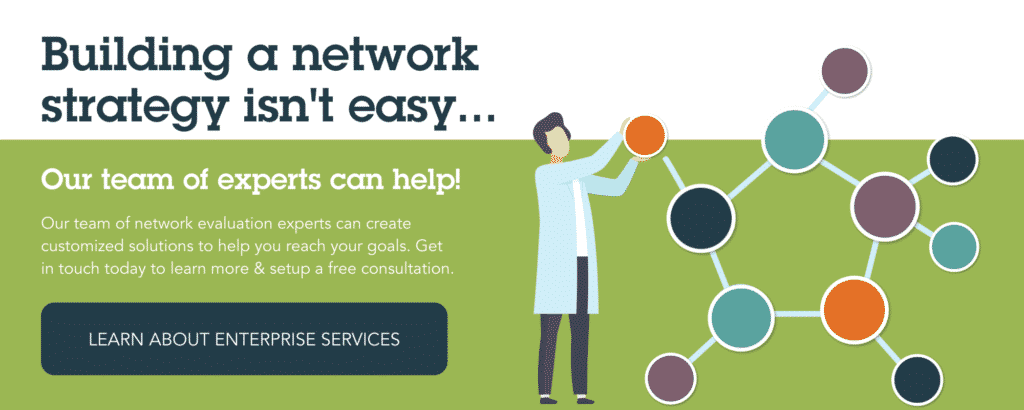Why We Trust Some Leaders: 5 Key Traits for Trust

Like most forms of leadership, trust is the foundation of network leadership. In fact it’s particularly important for collaborative situations, where leaders usually cannot claim formal authority, and rely on voluntary agreements for resources and decision-making. When trust in a network or coalition breaks down, the network breaks down with it. Here are 5 character traits that help you become a highly trust leader, originally compiled by Stephen Covey.
1) Talk Straight
People appreciate honesty and integrity from their leaders. This is rule #1 for a reason: Trust takes months, or even years to build, but can be lost in an instant when you’re caught in a lie. Don’t try to manipulate others or use “spin” in network management decisions or situations. Just speak truthfully and authentically.. we often think we’re better at hiding the truth than we really are, so you may be losing trust without even knowing it. Don’t risk it.
2) Demonstrate Respect
Show that you care about all those you come into contact with in a genuine way. Usually this comes through the little things: saying please and thank you, smiling, and asking questions of others instead of dominating conversation. Don’t fake concern or interest, force yourself to be genuinely involved. You can also take this as an excuse to bring together network colleagues in social events or outings to build stronger and more authentic relationships away from work. While it’s important to remain professional, a little socialization never hurts!
3) Create Transparency
Be authentic and open about your work. Don’t hide information or knowledge regarding how your network works from some of its members. Be purposefully inclusive: ask others for feedback and for their opinions and work to incorporate their responses into the final result. You would be amazed at how much people appreciate being asked for their opinion, even if it doesn’t ultimately change the final decision or outcome. Once included, they’ll also be far happier with the final result and eager to help implement the decision.
4) Right Wrongs
We all make mistakes, apologize when you inevitably do. Make restitutions and don’t assume you’ve been forgiven. Accept criticism openly and constructively, and act on suggestions whenever possible. Make a serious effort at improving as a worker, leader, and member of your collaborative effort. When asked what character traits people appreciate most from a leader, humility is almost always at the top of the list.
5) Show Loyalty
Share credit with all those who deserve it, especially those not present in the moment. Avoid the temptation to gossip or discuss rumors. Give others the benefit of the doubt, and don’t be two-faced. Loyalty has its limits of course… you should never try to protect someone guilty of criminal actions, for example. However loyalty goes a long way in creating trust and norms of collaboration and cooperation.
Trust is the Foundation
And there you have it: The Five Character Traits of Highly-Trusted Leaders! When it comes to network leadership or collaborative leadership, trust is at the core. You can’t do much without it, and it can take a long time and concerted effort to develop. Once you have it, maintain and build on it to keep your network strong and create an authentic culture of collaboration between your organization and those you partner with!

About the Author: Alex Derr, M.P.A.
Director of Marketing & Communications
Alex joined VNL in 2017, originally supporting our events. He now helps manages our communications and marketing strategy and content development work. Alex creates blogs, infographics, reports, and other content while managing our web and social media presence. He also runs our email marketing campaigns, tracks analytics, and conducts market research to drive our strategy. He supports our entire team with copywriting, graphic design and research, and helps with events, webinars, demos, and other online learning. When he isn’t at work Alex spends his time climbing 14ers (30 done, 28 to go!) and blogging on his own website, The Next Summit Blog.







